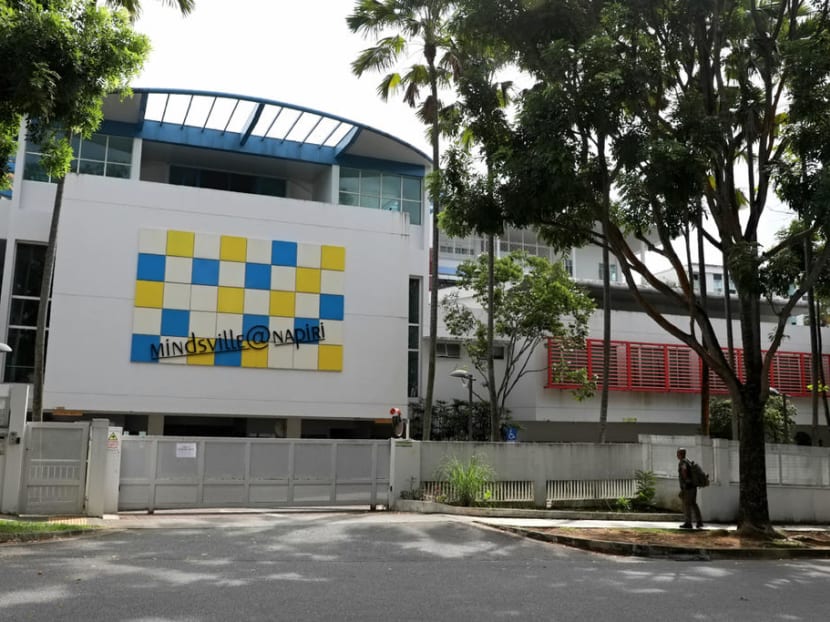Covid-19: MOH to review processes after relatives of people with special needs complain of insensitive treatment
SINGAPORE — After several family members of people with special needs spoke out about their bad experiences dealing with Covid-19 swabbers and quarantine officers, the Ministry of Health (MOH) on Wednesday (June 9) said that it is looking at how to improve its processes.
- Madam Rahayu Mahzam said MOH is reviewing its processes and arrangements in dealing with people with special needs
- Several families of people with special needs have complained about how they were treated when getting tested or quarantined
- Mdm Rahayu, Parliamentary Secretary for Health, said MOH is looking to engage relevant professionals and others
- Some swabbers said their training had not included how to deal with people with special needs
SINGAPORE — After several family members of people with special needs spoke out about their bad experiences dealing with Covid-19 swabbers and quarantine officers, the Ministry of Health (MOH) on Wednesday (June 9) said that it is looking at how to improve its processes.
Some swabbers told TODAY that they had not received training to deal with people with special needs, and believed that the ministry’s move to improve its processes would be helpful.
Complaints of people with special needs being treated insensitively were posted on social media by various families, after the emergence of a Covid-19 cluster earlier this month at Mindsville@Napiri in Hougang, a facility for people with intellectual disability.
In a Facebook post on Wednesday, Madam Rahayu Mahzam, Parliamentary Secretary for Health, said that MOH is looking into engaging relevant professionals, as well as volunteers from the National Council of Social Service (NCSS), who are trained to work with people with special needs to conduct swab tests for this group.
“Swab tests need to be done by trained personnel to ensure accurate results. While we have trained personnel to administer swab tests, they have not been specially trained to deal with persons with special needs,” she wrote.
She added that the ministry will also study the effectiveness of deploying alternative tests and review its processes and arrangements “to be more inclusive for persons with special needs”.
Mdm Rahayu also said that the ministry will improve communications among the various agencies involved in managing the quarantine process.
“We have reminded Certis, our agent for quarantine orders, to be mindful and exercise compassion when dealing with persons with special needs,” she added.
In an interview with TODAY, Mdm Rahayu said that she was able to view the issue as the parent of a four-year-old child who has Down syndrome.
She recalled a time last year, early in the Covid-19 pandemic, when she had taken her son to the hospital because he had a fever.
The boy had to be swabbed twice and was placed in isolation for a few days but she had been able to stay with him.
“He struggled like any small kid would but it was done by the doctors and nurses so they were professional and skilled, but (it was) still not fun to watch.
"I must say that it must have been a completely different experience for (those who came forward on social media) so I understand how it is useful to have people who are trained.
“It’s about finding the right people to step up to support us. It takes skill in calming people down and having a familiarity in dealing with people with special needs,” she said.
Mdm Rahayu added that some agencies have suggested that a manual or a video on this issue could be helpful and the ministry is looking into it.
For example, SG Enable, an agency dedicated to enabling persons with disabilities, wrote in a Facebook post on Tuesday that with MOH’s support, several medical institutions had created material of this sort, involving a care kit and video.
The initiative involved the National University Hospital, KK Women's and Children's Hospital and the Institute of Mental Health and it aims to empower caregivers as well as healthcare workers as they communicate with, and care for, people with special needs.
“The other aspect is to allow for the involvement of a family member where possible. We need to consider the medical procedures and the need to do things properly, but I think it is useful and helpful for a parent to be there for their child. I would want to be around,” Mdm Rahayu said.
LACK OF COMMUNICATION
Earlier this week, some family members of those involved in the Mindsville@Napiri cluster went online to air their grievances about how the situation was handled by the authorities. They urged greater sensitivity when dealing with people who have special needs.
Ms Amilia Koh, 26, whose 34-year-old brother has special needs and is a client of Mindsville@Napiri, wrote in a Facebook post on Monday about her experience, which “demonstrated the incompetence and lack of organisation within the MOH administrative office”.
The special education teacher wrote that while she had informed MOH that she would be caring for her intellectually disabled brother during his quarantine order, she was initially prohibited from accompanying her brother to the government quarantine facility.
Later, during her brother’s swab test, Ms Koh said that she was instructed to “watch from a distance” and was allowed to assist the swabbers only after her brother became increasingly frustrated and on the brink of an aggressive meltdown after 30 minutes.
Responding to TODAY’s queries, Ms Koh, who is now with her brother in a quarantine facility, said that she had received an apology from MOH yesterday.
“Had MOH taken extra steps in considering the potential challenges of swabbing individuals with special needs and (taken) the time to clarify questions as well as heed the advice of caregivers, this process would have been smoother,” she said.
Other family members raised frustrations over the conflicting instructions they said that they had received from MOH and Certis Cisco and the apparent lack of communication between various bodies.
Mr Khoo Yap Meng, 35, whose brother has special needs and goes to the Mindsville@Napiri day centre, wrote in a Twitter post on Monday that the authorities had given him contradictory information about whether he and his mother, who were quarantining at home with his brother, needed to take a swab test.
He said that he was also given conflicting information about whether he and his mother had to continue quarantining themselves after his brother was warded in Changi General Hospital after developing symptoms of pneumonia.
Mr Khoo expressed his frustration about the situation when contacted by TODAY. “We are 1.5 years into (the pandemic), shouldn’t these protocols be ironed out already?”
Both Ms Koh and Mr Khoo emphasised the need for the authorities to understand the profile of people with special needs and remain adaptable during the swabbing, quarantining and vaccination processes.
Similarly, Ms Cindy Chee, a parent of an 18-year-old autistic son, said in a Facebook post that her son was still traumatised after almost having to be swabbed.
In the end, the teenager was exempted after officers at the swabbing stations recognised his distress and acknowledged that his safety may be compromised if they went ahead with the swabbing.
She added: “Many (children with special needs) have difficulties coping with sensory issues and anxiety. I understand the authorities need to be firm when implementing safety measures but I (wish) there could be greater understanding of the underlying issues families with special needs face…”
NO PRIOR TRAINING
Part-time swabber Brian How, 21, told TODAY that the training that he received before becoming a paid swabber did not teach him how to handle people with special needs, which he learnt while on the job.
“(The people with special needs) usually get scared because of the unfamiliar environment and tend to move a lot when we are swabbing them. So I would give them stickers to pacify them and distract them from the swabbing process,” Mr How said.
He also said that it would have been useful if they had been provided training on how to swab people with special needs, though he said this would have taken more time.
“I felt quite okay (when I was swabbing people with special needs). It just felt like I was swabbing another person, just that I can tell by their expression and how they fidget that they feel a little more scared.”
Strength coach Daphne Loo, 38, who worked as a swabber for nine months from June last year to March this year, also said that she was never given special training to handle people with special needs.
“I don't think MOH or HPB or any other private healthcare organisations can fully prepare all their swab operations staff to fully equip them with the knowledge and understanding of every single mental health issue or disability that might make swabbing difficult.
“However, when it comes to such special needs communities and individuals, we need to take a step back, we need to bring in some experts, or allow caregivers to step in. There has to be that flexibility to break protocol when there's a need to. We can't all just blindly follow protocol and not listen to the needs of people in specific special needs communities like these,” she said.
A SEPARATE AREA
Occupational therapist Grace Tan suggested that having a separate, quieter and comfortable environment with fewer personnel for swabbing and vaccination of people with special needs may be helpful since these areas tend to be crowded, which can be overwhelming for people with sensory processing difficulties.
She added that it is also important to be patient and allocate more time for people with special needs for these procedures to be carried out and reduce their waiting time by scheduling a specific time for them.
The Movement for the Intellectually Disabled of Singapore (Minds) declined to comment and referred TODAY to a Facebook post they had made, which said that swabbing is necessary though the challenges faced by those with special needs and their families is "real".
The organisation said that it had provided feedback to MOH, along the lines of the suggestions that Ms Koh outlined in her post.
In response to queries from TODAY, Ms Alina Chua, principal autism consultant and psychologist at the Autism Resource Centre (Singapore), said that people with autism would find quarantine orders “challenging”.
“We are heartened that the Ministry of Health is looking into the various feedback and engaging relevant professionals and trained volunteers to improve the experience for persons with special needs,” she added.












